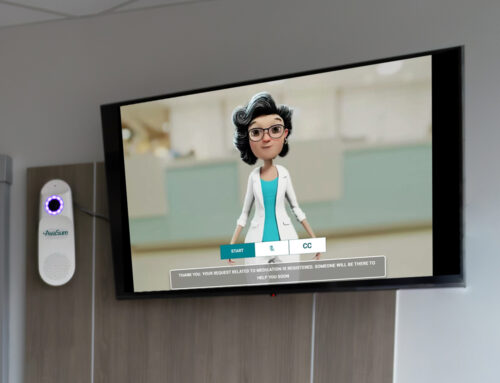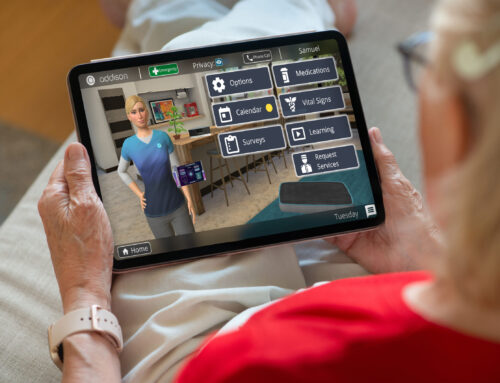Rhino Health announced it has closed a $5 million Seed financing round to improve AI-based healthcare solutions. The Rhino Health Platform connects hospitals and AI developers, providing access to a large, continually updated, distributed dataset from a diverse group of patients. Built on the foundation of Federated Learning, Rhino Health powers AI models that deliver consistent results and improve the standard of care. According to the company, this improves health outcomes for large populations of patients and creates equitable access to advanced AI-based diagnostics and treatment pathways.
LionBird Ventures led the financing round, which also includes Arkin Holdings and several angel investors who bring extensive experience across healthcare, imaging technology, software and biotech.
“Today, the transformative promise of AI-based healthcare solutions is held back by lack of access to a large dataset from a diverse patient population collected in different places and updated over time,” said Ed Michael, Managing Partner at LionBird Ventures. “Rhino Health is changing that. By connecting the hospitals that have extensive clinically relevant data with the innovative companies that are developing new AI-based solutions, Rhino Health will accelerate access to advanced healthcare across increasingly diverse patient populations.”
Rhino Health and NVIDIA are collaborating to bring the benefits of Federated Learning into the clinical setting. Rhino Health co-founder and CEO Ittai Dayan, MD, previously co-led the EXAM Study with NVIDIA researchers, which utilized Federated Learning, a distributed learning technique that can train machine learning models while protecting patient privacy. With the Rhino Health Platform, using NVIDIA Clara, the companies are empowering the clinical community to build robust AI models across different geographies, institutions, medical devices and patient demographics. Rhino Health is now a member of the NVIDIA Inception program.
For hospitals and health systems, Rhino Health makes it easy to collaborate in data-driven studies and AI research initiatives as well as with companies developing healthcare AI solutions. According to the company patient privacy is always protected, as data never leaves the system of origin. For the companies developing AI-based medical devices and software applications, Rhino Health provides access to an unprecedented quantity and quality of clinically relevant real-world data.
“AI is much more than a buzzword in healthcare. It is the underpinning of the next generation of technologies that will change the practice of medicine,” said Dr. Dayan. “To deliver on that promise, though, AI models must be created and trained using data that represents the real-world patient populations. We’re increasing access to diverse datasets, as that is what will ultimately make AI-based healthcare solutions widely available to and effective for the entire population of clinicians and patients who need them.”
“Rhino Health is bringing together foundational learnings and emerging best practices from AI-forward industries to ensure that healthcare solutions are solving real-world problems and delivering consistent results,” said Yuval Baror, co-founder and CTO of Rhino Health. “With Federated Learning, we’re able to do this in the privacy-centric manner this industry demands, advancing the interests of patients, hospitals and technology developers alike.”
According to Rhino Health, utilizing Federated Learning eliminates the complexity, expense and risk of moving and managing huge volumes of data. An AI developer’s model is applied to patient data where it lives. With this approach, AI models quickly and continuously improve – learning from each new dataset and applying those learnings to the next. This accelerates creation of more accurate AI models that work consistently across different patient populations, which leads to more widespread adoption of advanced healthcare solutions.
As AI-based solutions proliferate across the health ecosystem, there is increasing attention on how they are developed, utilized, maintained and measured throughout the full product lifecycle. In January 2021, the FDA updated its Action Plan for “Artificial Intelligence and Machine Learning in Software as a Medical Device,” underscoring the importance of inclusivity – across dimensions such as sex and gender, age, race and ethnicity – when assembling datasets for training and validation of AI devices.
“The power of Federated Learning in healthcare is immense, and a silver lining of the pandemic is that more people across the health ecosystem are increasingly aware of and interested in this approach,” said Fiona Gilbert, MD, chair of Radiology at the University of Cambridge School of Medicine, an author of “Federated Learning used for predicting outcomes in SARS-COV-2 patients,” and a member of Rhino Health’s Advisory Board. “Looking ahead, Federated Learning has the potential to deliver large-scale impact across diagnostic imaging and digital pathology, bringing together healthcare providers and technology developers in a way never before possible.”
About Rhino HealthTech, Inc.
The Rhino Health Platform provides access to the extensive, dynamic real-world patient data required to develop and commercialize AI models that deliver consistent results across diverse patient populations – in a low-risk, cost-effective, highly scalable way. Rhino Health’s approach is grounded in Federated Learning capabilities that make it possible for healthcare AI developers to leverage disparate datasets across hospitals and health systems without those care providers ever moving data, transferring ownership or risking patient privacy. Headquartered in Cambridge, Massachusetts, with an R&D Center in Tel Aviv, Israel, Rhino Health is a growing team of healthcare and technology experts committed to accelerating creation and adoption of AI-based healthcare solutions for increasingly diverse patient populations.












